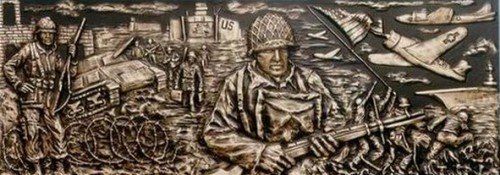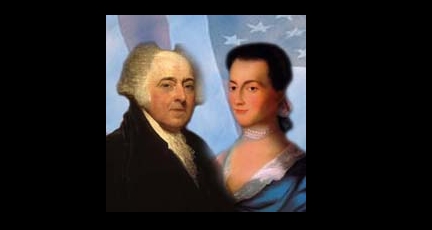 America has plenty of problems: state to state, north to south, sea to shining sea. I’m not divulging any state secrets, here. No need for a list of issues—plenty of other blogs and news outlets are only too happy to thrust them upon you.
America has plenty of problems: state to state, north to south, sea to shining sea. I’m not divulging any state secrets, here. No need for a list of issues—plenty of other blogs and news outlets are only too happy to thrust them upon you.
I allude to something perhaps more sinister: a collectively accepted lapse in national attentioin and memory regarding our nation’s fundamental beginnings. Yet we all take great pride, a profoundly uncultivated zeal, in celebrating July 4th as our “Independence Day.”
Reveling in a glorious fireworks display is arguably an American rite-of-passage. We take for granted that at some point our children will be taught what the fireworks mean in their classrooms and history books. I wouldn’t wager so much as a dollar on that.
• 26% — that’s one in four — Americans don’t know what country we declared our independence from. I’m not a drinker, but these recent poll results give me reason to contemplate the necessity.
When asked when—what year—only 31 percent of adults younger than 30 said 1776, while 59 percent between 30 and 44 got the question right. Americans 45 to 59 were most likely to know the year: 75 percent got it correct. 65 percent of men got the answer right while only 52 percent of women did.
Here’s the stunner: 9% of college graduates were uncertain as to what country America declared her independece from; 2% of those graduates mentioned countries other than Great Britain.
Pathetic? Pathetic isn’t strong enough a word. It is entirely unsurprising, though. Had these two basic facts of our history been added to broadcasts of American Idol I’d bet those numbers would be much improved. Do I really need to spell it out? I think the indictment can be extracted without much effort.
• Only 28% of Americans say they have read the Constitution, and 14 percent say they’ve read most of it. I will grant you that it’s not exactly a page turner and the language used is hard for us to assimilate today, but the resources available for learning about this incredibly important document are copious.
The results above come from a study conducted by the Center for the Constitution. They also revealed that respondents 18 to 24 years old claimed they understand the Constitution much less than older people; they also said the Constitution doesn’t affect them on a day-to-day basis. Wow. Really?
Need more proof that Americans are far more about hot dogs, burgers, and fireworks than knowing why we have this holiday?
• 42% of Americans attribute a Marxist slogan to James Madison. I’d be surprised if 10 oercent of them actually knew who James Madison was (here’s a gimme: he is considered to be the father of our Constitution, wrote over a third of the Federalist Papers, and also served two terms as President in the early 1800’s). Madison was no communist.
The Bill of Rights Institute recently commissioned a new poll and their results do little to provide confidence in the fideltiy of American knowledge of their own country or principles. The communist slogan, “from each according to his ability, to each according to his needs” is thought by the aforementioned 42% to be part of our founding documents; 1 in 5 Americans think these very words are in the Bill of Rights!
Just for fun try strapping this on: 55 percent of Americans don’t recognize that education is not a First Amendment right. Staggering.
Seriously.
The founders believed education to be critical to the new nation’s success, but they didn’t write it into the Constitution. But they knew that an uneducated populace was surely a death blow to such a fragile political experiment as ours. John Adams wrote “Liberty cannot be preserved without a general knowledge among the people.” Wouldn’t he be dismally disappointed today.
That beer habit is looking better and better.
Every cake should have icing, and here’s mine: I have heard that every so often, say every 5-10 years, somebody takes the first paragraph from the Declaration of Independence, verbatim, and sends it around in the guise of a petition. Not surprisingly many of those presented with the opportunity to sign it regard the ersatz petition as subversive to America. I have searched and haven’t found hard proof of this, but given the above surveys it wouldn’t surprise me one bit to learn it was true.
In complete fairness I submit the obvious, that these polls and surveys are not conducted or given to all citizens—these are but representative samples of the populace. Given that, what does it say about the overal civic underpinnings of our citizenry? Frankly, not much.
For many July 4th is just another day off work, yet another paid holiday for civil servants, municipal workers, and bank employees. The capitalist machine gears up to sell barbeques, hot dogs, hamburgers, beer, soda, ice chests, and paper plates and napkins with patriotic motifs. I have yet to see any retail outlet selling framed copies of the Declaration of Independence, not so much as a t-shirt with a slogan like “1776 — We made Britain our bitch!” Lots of bald eagle and Liberty Bell knick-knacks and sparklers, though.
Where is the deep, resonant echo of our revolutionary past? Where is the reverence and idealogical spirit that instigated an event unrivaled in history? We stood up to what was then the world’s greatest, best trained military force and wore them down . . . with unquestionable help from, as George Washington said “the hand of Providence.”
What does it say about how debilitating political correctness has become that we allow someone to bring suit in court to remove “under God” from the Pledge of Allegiance; to remove “so help me God” from a sworn oath in court; to have blithely turned over all our leverage as knowlegable citizens to special interests and politicians who are far more interested in their own welfare than that of the country?
It’s one thing to stand up straight, chest out, and proudly declare “I am American.” But do you know what that means? Do you know the answers to the basic questions below:
‣ Two of the original founding fathers died on the same day—July 4, 1826—within hours of one another, 50 years to the day which we publically proclaimed independence? (I’ve used both their names within this post)
‣ What are the first ten amendments to the Consititution called? (it has been mention in this post too)
‣True or False: The Declaration of Independence begins “We the People . . .”
‣ True or False: George Washington used the phrase “Four score and seven years ago” in his first inaugural address as President.
‣ True or False: The Constititution of the United States begins “When in the course of human events . . .”
Some quick facts . . .
• The Second Continental Congress adopted a formal declaration of independence from the crown on July 2nd, 1776. Debate and alterations to the document ensued through the 3rd and the morning of the 4th. We officially became the United States of America on the 2nd of July.
• Thomas Jefferson was not the sole author of the DOI. He did do the bulk of the work, but John Adams and Benjamin Franklin had a lot to say about it. Franklin was responsible for the phrase “self-evident” in the opening paragraph.
• You might think Jefferson was the first signer of the declaration. It was actually John Hancock. The document was signed by most of the members on August 2. The last signature was applied five years later in 1781.
Every country has its sunshine patriots, as well as its zealots. The further we allow our history to fade into obscurity the weaker we become as a nation. Clad in the armor of facts and knowledge we can reclaim the power that has been siphoned from us for so long. We have long gained strength from the diaspora of other countries, helping them to use our truly exceptional freedoms to piece their dreams and families back together, to achieve in America what their country of birth actively denied them. We can regain global respect and admiration as we had in the early 19th century—but to do so we need to understand the precious value of the soil beneath our feet, not trample on it with utter disregard. We need each other more than we realize. Time may indeed make more converts than reason, but do we have that luxury anymore?
May God Himself visit tender mercy upon this land, and help us understand and appreciate the perfection in our imperfect union as the founding fathers did. May he imbue our youth with the tempest of patriotic love for country, and the elders with the accountability to teach them. May he provide us with the strength to keep our enemies at bay and our true brethren at heart.
And may God Bless the United States of America.








